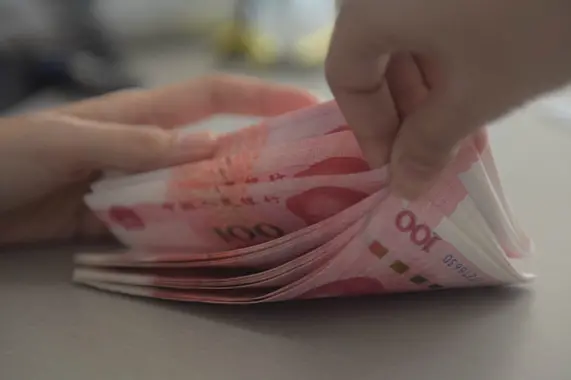The central bank has drawn up new guidelines to strengthen inspections of domestic companies that make yuan loans overseas, the latest move to curb speculative shifting of yuan amid short-term depreciation pressure, a source with the bank said on Thursday.
Lenders must register with local foreign exchange regulative bodies in China before issuing loans overseas, and the amount of the loans should not exceed 30 percent of net assets of the lender, according to the source, who requested anonymity.
The guideline is among many methods that the central bank could use to enhance management of speculative capital flow, the source said.
Sun Haibo, CEO of Shanghai-based Faxun Financial Regulation and Law Co, a financial law consulting company, said that implementation of the guideline "will be the first time that the central bank has set up a ceiling amount for yuan-denominated loans that lenders are allowed to issue overseas."
The central bank has become aware of the risks brought by speculative behavior through moving yuan out of the country, Sun added.
"Issuing loans overseas is a rather simple way to move money out compared with other methods, with no approval procedures required to go through from the nation's foreign exchange regulator," said Sun.
A Morgan Stanley report released on Tuesday said that cross-border yuan flows picked up strongly to an average of $28 billion per month through October this year, accounting for half of the total outflows, in contrast with declining offshore yuan deposits.
That means that yuan flowing to foreign countries have been converted to foreign currencies rather than promoting the use of yuan offshore, the report said.
Wang Youxin, an economist at the Institute of International Finance of the Bank of China, said that the new rules would not affect borrowers in foreign countries, as long as they have legitimate needs.
"The central bank is not imposing a new cap, only enhancing regulations," said Wang.
Robin Xing, chief China economist with Morgan Stanley, said he foresees regulative bodies introducing more measures to regulate capital outflows if the United States Federal Reserve increases rates, keeping capital outflow pressures alive.
Wang said capital outflows tend to stabilize with such stricter inspections, which in turn improves investors' long-term outlook for the Chinese economy.
(CHINA DAILY)
 简体中文
简体中文

